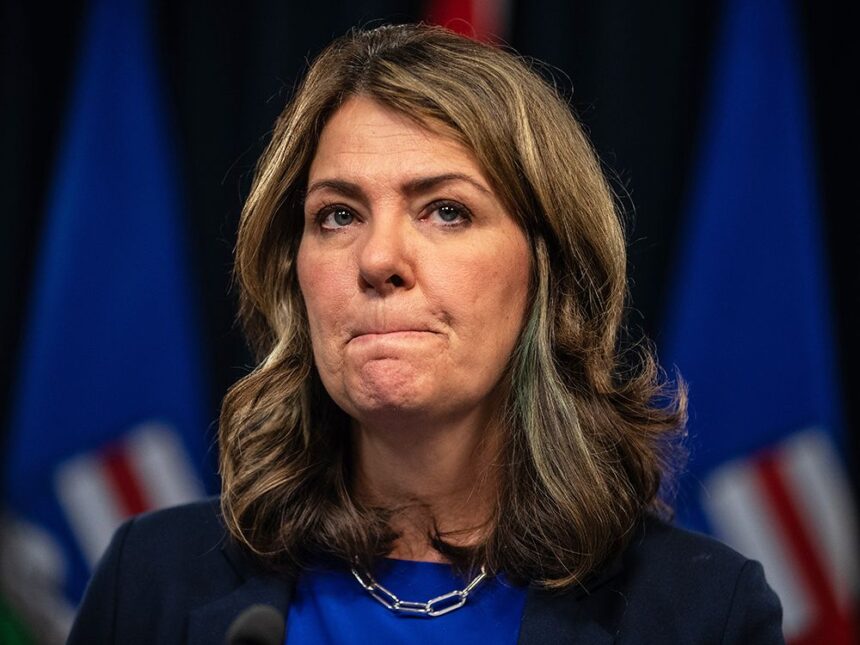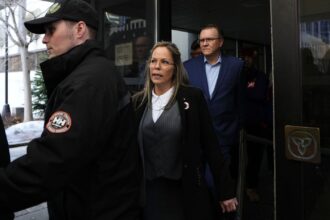In a bold declaration that has intensified the already fraught federal-provincial relations, Alberta Premier Danielle Smith has characterized the ongoing conflict with Ottawa as the “existential threat” facing her province. Speaking at a recent United Conservative Party fundraising event, Smith articulated a vision of Alberta’s future that places federal overreach at the center of the province’s challenges—a statement that reveals the deepening divide in Canadian federalism.
“The federal government continues to encroach on areas of provincial jurisdiction that directly impact Albertans’ livelihoods and our economic prosperity,” Smith told a crowd of supporters, her words resonating with many in a province where federal-provincial tensions have historical roots. “This isn’t about political posturing—it’s about protecting Alberta’s constitutional rights to develop our resources and determine our economic future.”
The premier’s comments come amid escalating disputes over energy policy, environmental regulations, and fiscal arrangements. According to provincial analysis, federal initiatives like the clean electricity regulations and emissions caps could cost Alberta’s economy billions in potential investment and thousands of jobs in its cornerstone energy sector.
Economic data supports some of Smith’s concerns. Alberta contributes approximately $20 billion more annually to federal coffers than it receives in transfers and services—a fiscal imbalance that has long fueled western alienation. This disparity, according to political economists at the University of Calgary, creates a structural tension that transcends party politics.
Smith’s administration has responded with a legislative agenda designed to assert provincial autonomy, including the controversial Alberta Sovereignty Act, which provides mechanisms to challenge federal laws deemed harmful to provincial interests. Critics, including constitutional experts, question whether such measures will withstand judicial scrutiny, while supporters view them as necessary protective measures.
Federal Environment Minister Steven Guilbeault countered Smith’s characterization, stating that “climate action and economic prosperity are not mutually exclusive goals.” He pointed to federal investments in carbon capture technology and clean energy initiatives in Alberta as evidence of Ottawa’s commitment to a collaborative transition.
The rhetoric on both sides reflects a fundamental disagreement about Canada’s federalist structure and the appropriate balance of powers. Dr. Jared Wesley, political scientist at the University of Alberta, notes that “this conflict represents competing visions of Canada—one that emphasizes strong provincial autonomy versus one that envisions a more centralized approach to national challenges like climate change.”
For ordinary Albertans, the practical implications of this constitutional standoff remain unclear. Public opinion research shows a divided populace: while 62% express concern about federal overreach, a similar percentage worries that confrontational politics damages Alberta’s long-term interests and national standing.
Business leaders have also expressed mixed reactions. The Calgary Chamber of Commerce has urged both levels of government to find pragmatic solutions, warning that “uncertainty created by intergovernmental conflict discourages investment precisely when we need it most.”
Smith’s framing of federal relations as an “existential threat” marks a significant escalation in rhetoric, even for a premier who has built her political brand on provincial autonomy. It raises important questions about the sustainability of the current federal-provincial relationship and whether Canada’s confederation model can accommodate such divergent visions of governance.
As this conflict unfolds, the fundamental question remains: can Canada’s federal system evolve to address legitimate provincial concerns while maintaining national cohesion on critical issues like climate change and economic development, or are we witnessing the beginning of a more profound constitutional crisis?
Read more about Canadian politics and stay updated on Alberta news.


















